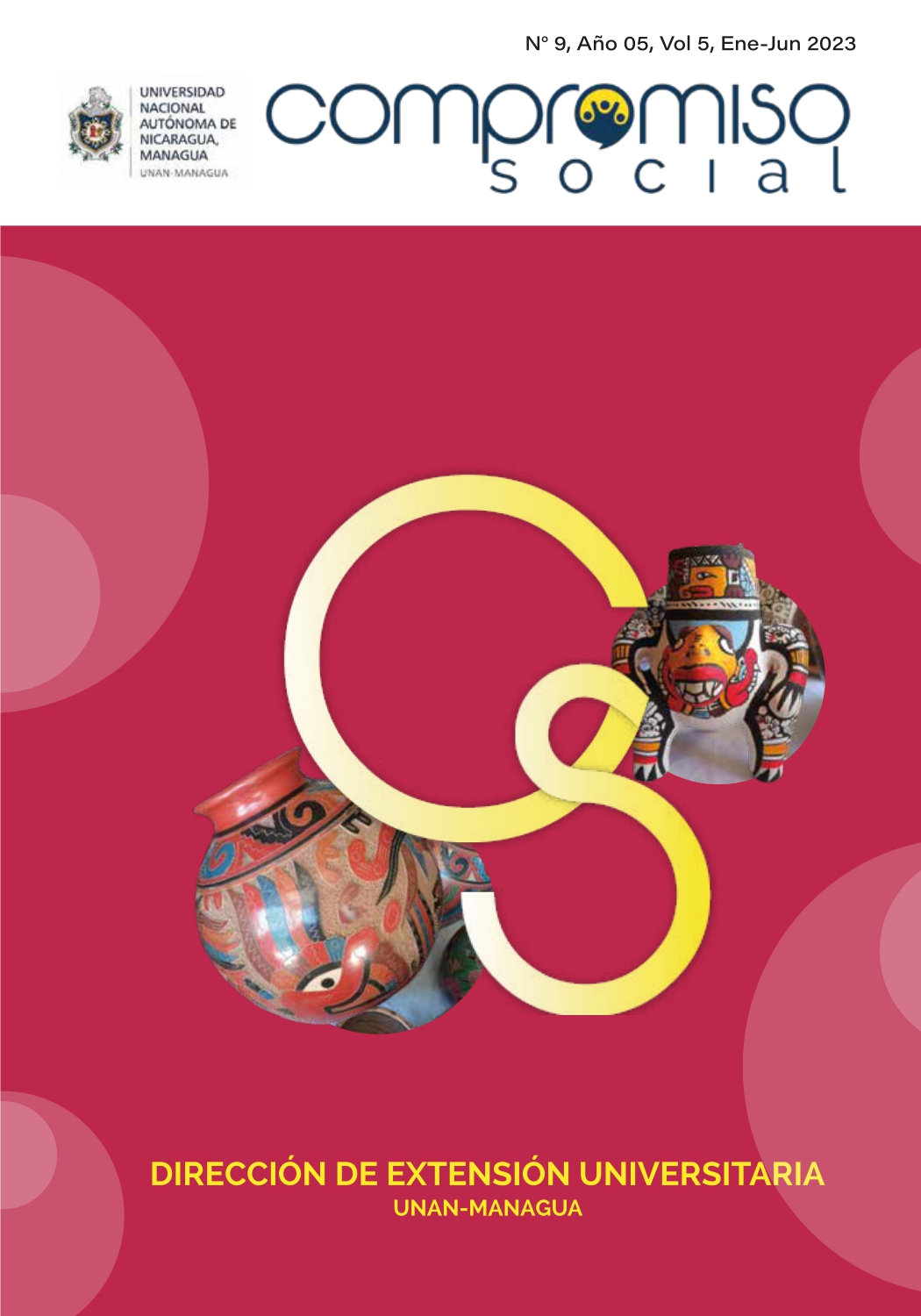UNAN-Managua: Sanitary Hygiene Practices of a Healthy University
DOI:
https://doi.org/10.5377/recoso.v9i9.18580Keywords:
Hygienic, Sanitary, Disease, FoodAbstract
The sanitary hygienic conditions of the canteens and institutional kiosks of the National Autonomous University of Nicaragua, Managua, UNAN-Managua, are key to protecting the health of the university community and their objective is to evaluate the sanitary hygienic conditions, being an essential part of the actions framed in the Healthy University Program during the year 2022. The sanitary hygienic evaluation process in the university canteens was accompanied by workshops developed by the staff of the Hygiene Directorate of the Ministry of Health (MINSA). In these workshops, issues related to good practices in food handling, the national legal framework for food handling and processing were addressed. As well as the process and basic requirements to start the sanitary license process for food processing, sanitary records and registrations, based on Law 423, General Health Law and contemplated in Decree 432. Regulation of Sanitary Inspection. In this sense, during this year, a Transversal Non- Experimental Study was carried out, which consisted of an Inspection Study in the 28 Institutional Canteens and Kiosks, located in the Rubén Darío (RURD) and Carlos Fonseca Amador (RUCFA) University Campuses of the UNAN-Managua, corresponding to 6 institutional premises, 2 located in the Research Centers; 12 of them are RURD tenants and four RUCFA tenants. This sanitary hygienic evaluation process consisted of carrying out an inspection based on the Sanitary Technical Regulation of Institutional Canteens of the Ministry of Health (NTON 03 026-10). In it, the variables related to the hygienic-sanitary conditions of the premises, conditions of the personnel, raw material, food, fumigation, sanitary certification, among others, were studied. According to the variables studied, the deficiencies found in most of the canteens and kiosks inspected were the lack of protection in the lighting elements, lack of anti-insect mesh, inadequate conditions in the food preparation area, both physical and in handling. of food and solid waste. As a result, a physical evaluation was carried out accompanied by the completion of the Sanitary Test of the Ministry of Health, which records the sanitary and hygienic conditions of each location, as well as a quantitative and qualitative assessment by the MINSA Sanitary Inspector. In this way, the process of preventing the risks of contamination and deterioration of food sources of diseases communicable by them was fulfilled, in order to opt for the sanitary hygienic accreditation of the canteens and kiosks located in UNAN-Managua.
Downloads
References
Organización de las Naciones Unidas para la Alimentación y la Agricultura. CODEX ALIMENTARIUS. Requisitos Generales. 2da. Edición
Ministerio de Salud. (1989). Decreto- 432. Reglamento de Inspección Sanitaria.• OMS: Manipulación correcta de los alimentos. 1990
Hernández, N. C. (2001). Implementación básica de un comedor industrial• Ministerio de Salud. (2002). Ley 423. Ley General de Salud. Recuperado de: https://www.minsa.gob.ni/index.php/repository/Descargas-MINSA/Direcci%C3%B3n-General-de-Regulaci%C3%B3n-Sanitaria/Regulaci%C3%B3n-de-Alimentos/Legislaci%C3%B3n-Nacional--Para-Control-De-Alimento/orderby,7
Ministerio de Salud. (2010). Norma Técnica Obligatoria Nicaragüense de Manipulación de Alimentos. NTON 03 026 10. (2010) Requisitos Sanitarios para Manipuladores.
Instituto Nacional de Aprendizaje. (2017). (Costa Rica). Manipulación de alimentos
Universidad Nacional Autónoma de Nicaragua. (2021). Programa Universidad Saludable.
Downloads
Published
How to Cite
Issue
Section
License
Copyright (c) 2023 Universidad Nacional Autónoma de Nicaragua, Managua(Unan-Managua)

This work is licensed under a Creative Commons Attribution-NonCommercial-ShareAlike 4.0 International License.




